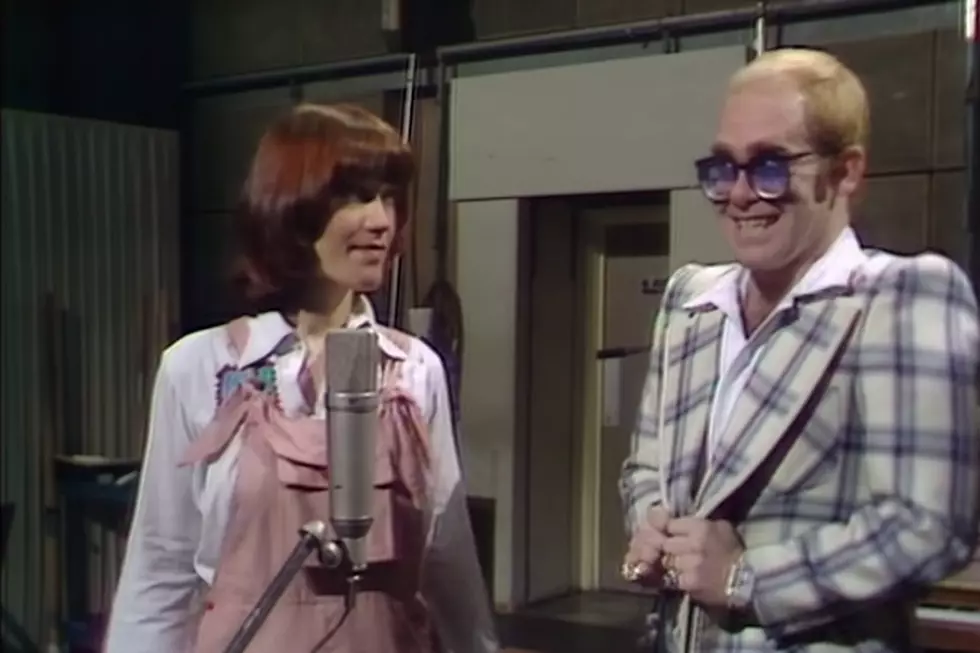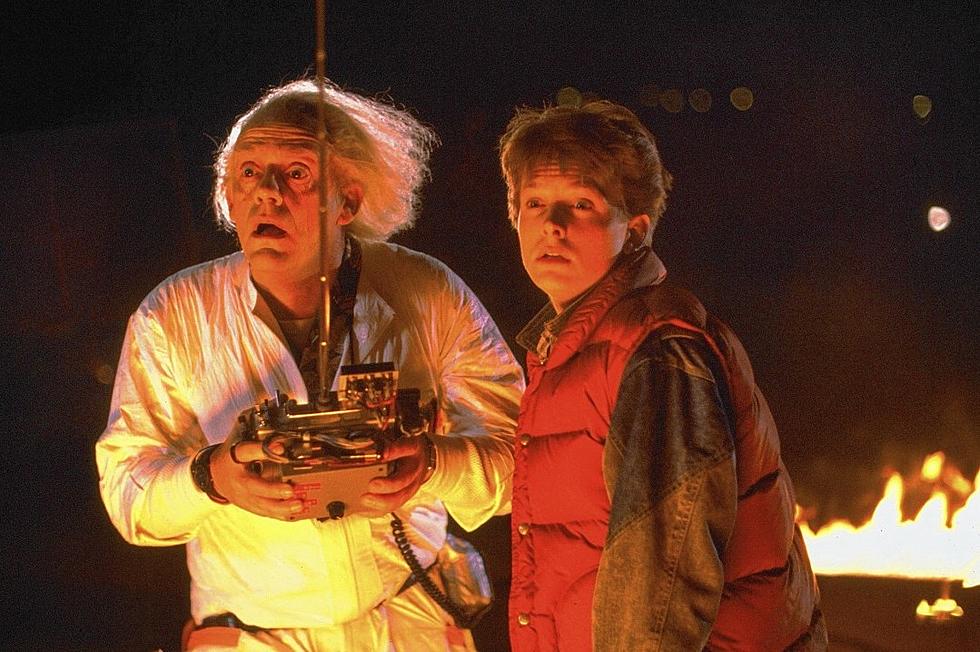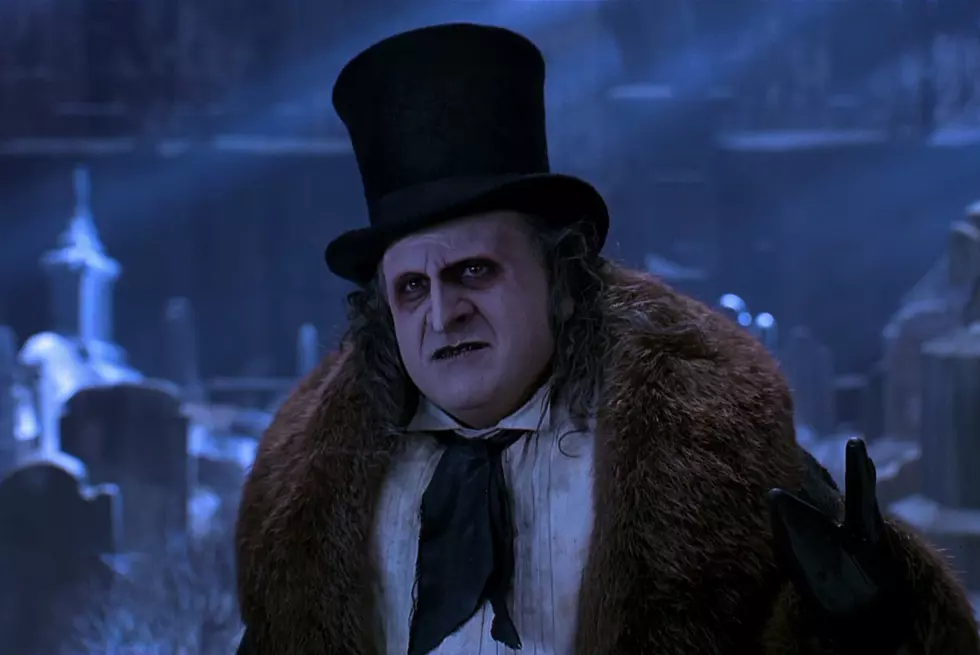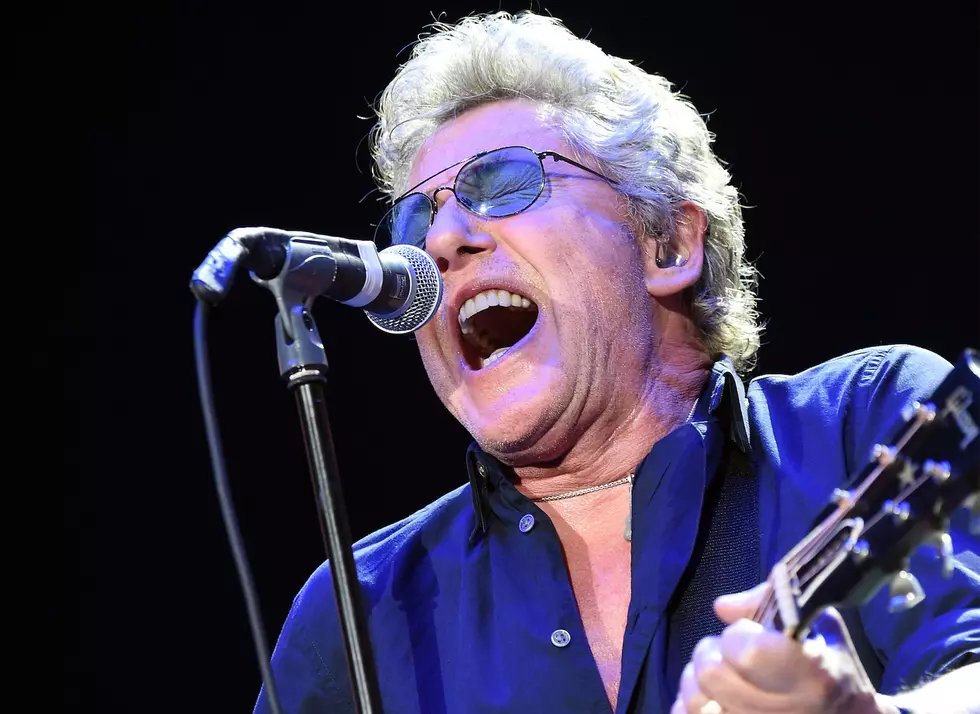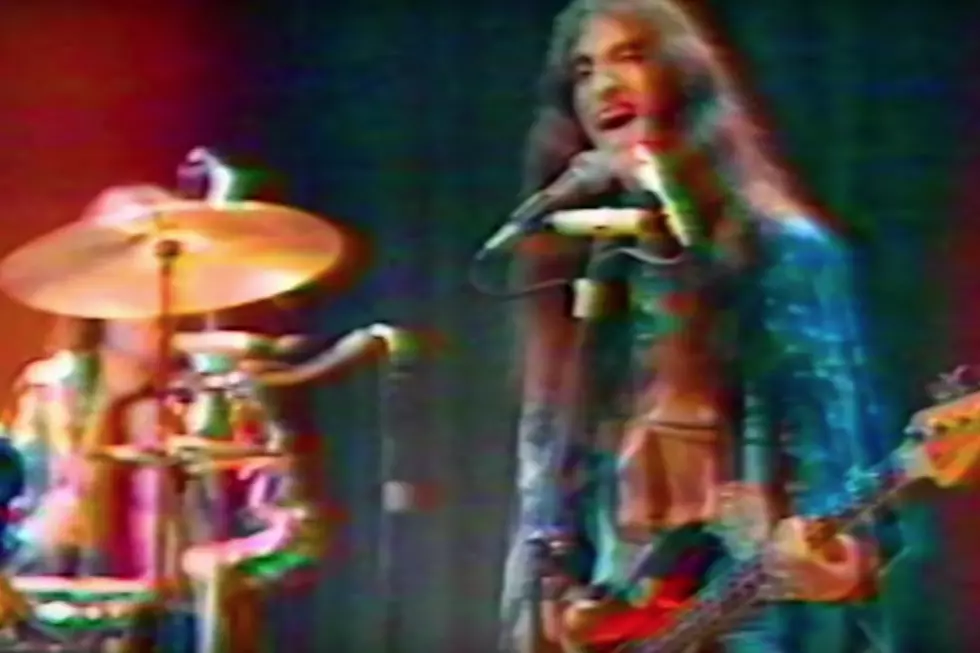
Why Rush’s First U.S. Show Was a Complete Disaster
Rush's first show in America ran a promoter out of the business and infuriated local officials to the point that they established new legislation. There were as many as four overdoses, too.
Promo ads promised a 12-hour music festival, headlined by Dr. John and set for May 18, 1974 at Northside Drive-In near Lansing, Mich. The thought was this could be a kind of mini-Woodstock, with some 30,000 people expected to attend. There was talk of an accompanying motion picture.
So, Rush was set to arrive with a very big bang. Then the rains came. Then several members of the muddy, drug-addled crowd were taken away by ambulance. Then Dr. John never showed.
"He had all these ridiculous rules in place," Dennis Demeter, brother of the late original promoter Tom Demeter, told the Lansing State Journal in 2010. "He requested to be flown in by helicopter and stuff like that. We obviously couldn't meet those demands, and it became apparent he wasn't coming."
That left a bill featuring the still up-and-coming New York Dolls, a Beatles tribute band known as Liverpool, the Cosmic Beam Experience light show, and a trio of then-unknown future prog-rock stars called Rush. Soon, Demeter said beer bottles were being thrown toward the stage. "The crowd didn't get it," concert-goer Mark Mondol told the State Journal. "It was more of a working-class crowd, more Mitch Ryder."
A contemporary news account focused on an underage overdose victim who was listed in serious condition the next day at a local health-care facility: "The youth ingested what a hospital official described as PCP, a tranquilizer used in treating horses."
At this point, Rush still featured original drummer John Rutsey. A Cleveland disc jockey hadn't yet sparked American interest by playing one of their songs, so they had never ventured south of the Canadian border. They'd been together for years, but remained unsigned.
"Canadian companies are only interested in immediate money and hits," frontman Geddy Lee lamented in the March 21, 1974 edition of Eye. "They try to mold you into a commercial band, and they're afraid to invest in a band for the long run."
Hopes that the Northside Drive-In could provide a breakthrough moment were quickly dashed. "I heard the announcer talking to the crowd about this amazing new band from Canada and how they were a great bunch of guys," Mondol added, "and I thought, 'Yeah, yeah.'"
Even Rush's actual performance is lost to history. One attendee could only remember that it was loud; Mondol said all he recalled was "a lot of hair." There is apparently no surviving setlist.
Rush needed to reset. That finally happened with the imminent departure of Rutsey, who proceeded to miss a string of dates in 1974. "We knew early on that John had problems with his health," guitarist Alex Lifeson told Louder Sound in 2016. "He had diabetes, and he was very concerned about whether it would be manageable for him on the road. We used another drummer, Jerry Fielding, and then John came back for a month of club shows. But that was it for John. We had to fire him."
Neil Peart would make his debut as Rutsey's replacement in August, setting the stage for Rush's multi-platinum, Rock & Roll Hall of Fame career. But all of that must have seemed particularly unattainable as Rush battled both the elements and a sparse, apparently high and quite hostile crowd a few miles north of the Lansing city limits in DeWitt Township.
History was made in other ways. As an earlier headline noted, DeWitt residents were angry about the show before it ever happened. Some 70 of them peppered officials for hours at a pre-concert town meeting that covered everything from noise and parking to public safety at the sprawling site.
Bruce Angell, a former police chief who was handling security for Demeter, tried to quell their worries: "I don't think this is going to be like the Huns coming in," he said in a Clinton County News report just days before Rush's appearance.
Both the DeWitt and Meridian townships immediately began considering a new ordinance that would more closely regulate this kind of outdoor event. The statute was aimed at "but not limited to music festivals, rock festivals, peace festivals and similar gatherings," the Lansing State Journal reported on June 6, 1974.
The irony? Angell was utterly correct: The event flopped. Mondol, who had been asked to film the proceedings for a public-access program sponsored by Michigan State University, estimated that no more than 2,000 attended. Others put the crowd at 1,300.
"My brother lost his butt on that deal," Dennis Dementer said. "He had to file bankruptcy. He decided it wasn't his calling." In the next day's news coverage, Tom Dementer lamented: "Rock concerts are dying out."
That didn't happen, of course. Unfortunately, the same couldn't be said for the Northside Drive-In, which closed for good in 1993 – but not before police staged a huge drug raid.
The Hilariously Bad First Concerts of Rock's Biggest Bands
The Rush / Metallica Team-Up That Slipped Away
More From 92.9 The Lake
